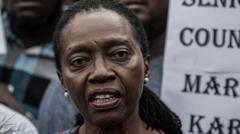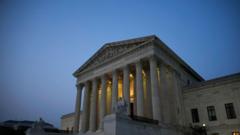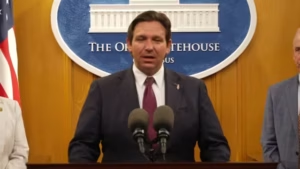In a significant ruling on Wednesday, Judge Brian Murphy emphasized that deportations without allowing migrants the opportunity to challenge their removals to third countries violate due process—raising serious legal and human rights concerns.
Judge Rules US Deportations to South Sudan Breach Court Order

Judge Rules US Deportations to South Sudan Breach Court Order
A federal judge has determined that the deportation of eight men to South Sudan contravenes judicial orders designed to protect migrants' rights.
A federal judge ruled that the deportation of eight men to South Sudan "unquestionably" contravened his previous order allowing migrants the chance to contest their removal to third nations. Judge Brian Murphy's decision, announced on Wednesday, follows a day after he mandated that US officials keep the men in custody due to illegal deportation concerns linked to his injunction against sending migrants to non-homeland countries without granting them a means to object.
The Department of Homeland Security (DHS) has characterized the individuals as "uniquely barbaric monsters" convicted of heinous crimes, arguing that South Sudan is not their final destination. However, during a hearing, Judge Murphy criticized the DHS's actions, stating that the deportation attempts were "unquestionably violative" of the court's orders. "I don't see how anybody could say that these individuals had a meaningful opportunity to object," he remarked.
Justice Department attorneys contended that the judge's orders had led to misunderstandings. Ahead of the hearing, a lawyer revealed that the aircraft carrying the deportees had touched down but was vague about the specific location due to "serious operational and safety concerns." The judge is set to decide whether to hold DHS officials in contempt of court.
Earlier on Wednesday, DHS shared information about the eight deportees, revealing their nationalities and criminal records. Spokeswoman Tricia McLaughlin defended the department's actions, asserting it was unreasonable for a US judge to dictate national security and foreign policy.
Director of Immigration and Customs Enforcement Todd Lyons remarked that without a country willing to repatriate citizens, they would resort to finding a "safe third country" for these individuals, though the destination was not disclosed. Judge Murphy’s April ruling required that illegal migrants be given a "meaningful opportunity" to contest their removal, prompting a swift hearing when it was reported that the men were on a deportation flight.
One of the deported men, Myanmar citizen Nyo Myint, had received two conflicting notices regarding his deportation plans. His attorney expressed concern over Myint's current whereabouts, highlighting ongoing issues of due process amid the government's aggressive deportation strategies. The judge's ruling comes at a time when the Trump administration is ramping up collaborations with other nations for accepting deported migrants, having previously been reported to send Venezuelan citizens to El Salvador's mega-prison.
With the US revoking visas from all South Sudanese passport holders over the government's refusal to accept deported citizens, the legal tug-of-war surrounding migrant deportation practices continues, stirring questions about human rights and judicial oversight in immigration processes.




















